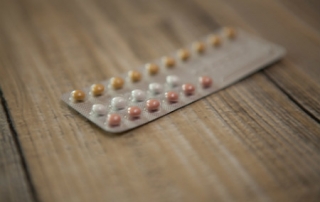Cognitive Therapy versus Medication in the Treatment of Depression
Both antidepressant medications and cognitive therapy have been shown to be effective for the treatment of depression; however, the question remains as to whether one treatment is preferred over the other. Subjects enrolled in The Sequenced Treatment Alternatives to Relieve Depression (STAR*D) study (men and women with major depression, ages 18-75) were initially treated with citalopram, an SSRI. Those who had unsatisfactory outcomes after initial treatment were eligible for a randomized second-step treatment trial in which they switched to a new treatment (either cognitive therapy or a different antidepressant) or augmented the citalopram regimen with either cognitive therapy or a different antidepressant.








